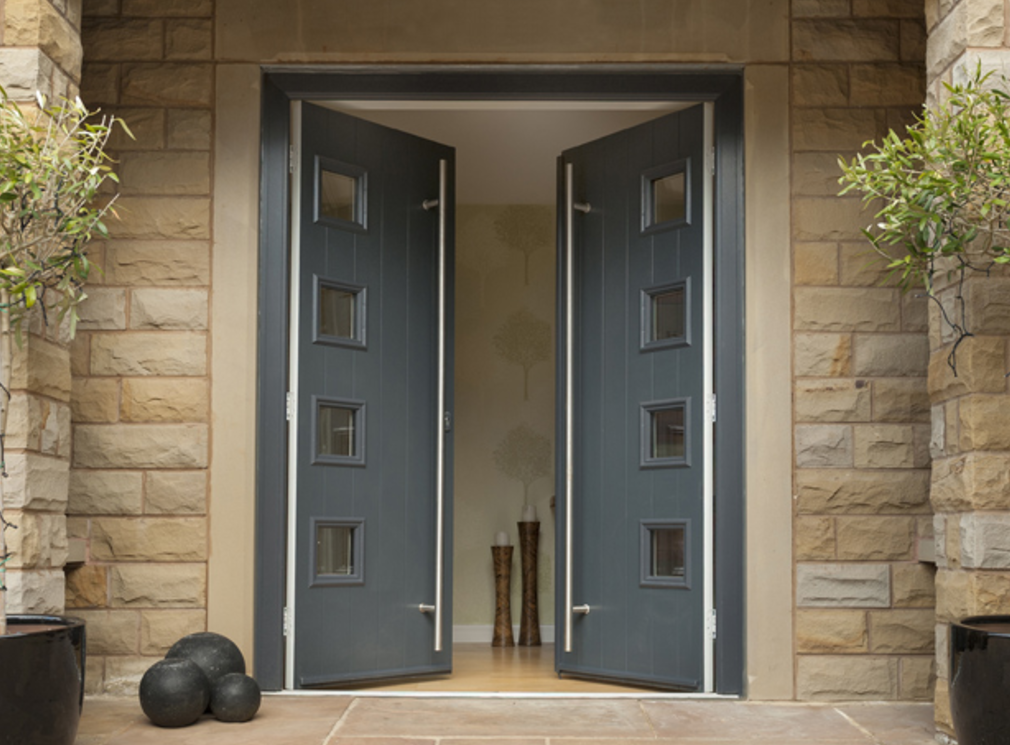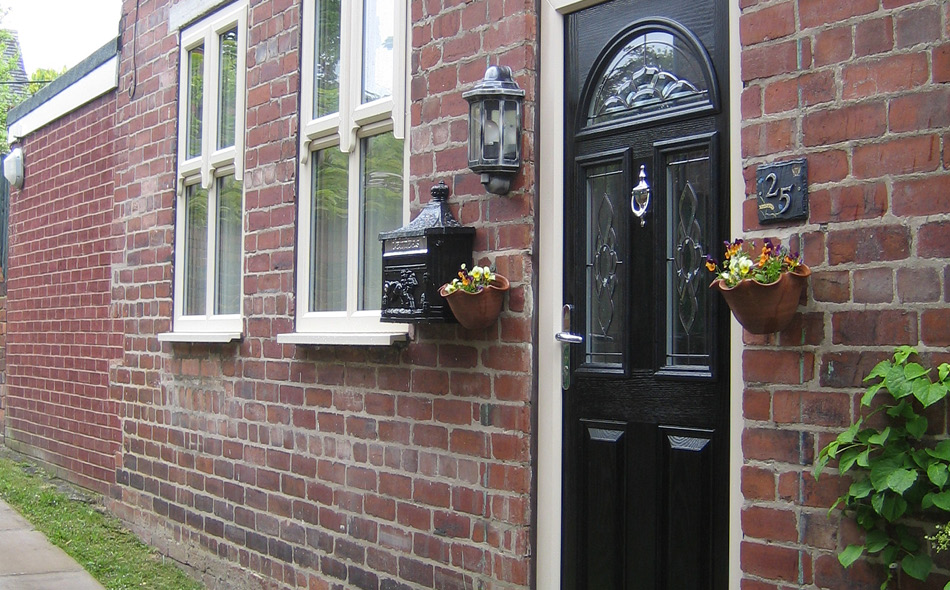The Pros and Cons of Composite Doors
31 October 2019
Updated 20 April 2023
Composite doors are a great investment for any homeowner who’s interested in upgrading their front or back doors.
And whilst there are a lot of pros and cons for composite doors, it’s hard to outweigh the many benefits composite doors have to offer.
We’ll be answering some of the pros and cons regarding composite doors including;
Pros
- Composite vs wooden doors
- The best front door for security
- Style and Durability
Cons
- Are composite doors more expensive than uPVC?
- How to stop composite doors creaking
So before you go ahead and purchase a uPVC door or a french door, take a look at this article one more time just to remind yourself of the advantages and disadvantages of composite doors.
Pros of composite doors
There are many pro’s to owning a composite door, whilst we’ve covered this topic before, we’ve listed some key standout features and benefits of owning a composite door.
Composite vs wooden doors
The key benefits of owning a composite door vs a wooden door is the low maintenance and longevity composite doors have to offer. They last for many years and don’t require re-painting or many repairs.
Whereas wooden doors over time can begin to look dated (old paint beginning to chip), are liable to rotting and can’t withstand tough weather conditions that composite doors can.
And for a slightly higher price, a composite door overall seems like a good investment compared to a wooden door.
The best front door for security
There’s no doubt that composite doors are the most secure and safe door to choose from. With it’s reinforced materials, the overall strength and quality of the door, it’s arguably one of the best doors in terms of security on the market.
Not to mention the state-of-the-art locking mechanisms used inside the door, it makes composite doors an all-around equipped door to prevent intruders and deter thieves.
Style and Durability
Now that we know the door is low maintenance, is sustainable and is one of the most security-focused doors on the market, what about the style of the door and how durable is it?
Composite doors come in a range of different colours and styles, allowing the homeowner to fully customise the door to their own specification and design, in-keeping with the rest of their home.
Whereas some doors may lose a sense of durability and sustainability because of the style and design, the composite door doesn’t. It fully maintains its strength, longevity and energy-efficiency benefits.

Cons of composite doors
So now we know all about the benefits of owning a composite door, it may seem too good to be true. But to put things into perspective every product has a few disadvantages which could be improved upon and we’ve picked out the two biggest disadvantages that may put homeowners off from choosing a composite door for their home.
Are composite doors more expensive than uPVC doors?
One of the main downfalls of composite doors is the price.
When shopping around for a new front or back door, the price tag that comes attached with a composite door could be the number one reason homeowners are put off from buying one from their home.
Whilst we can’t give an exact figure, many homeowners would be looking to spend up to the region of £1,000 if not more.
And while this may be seen as a disadvantage, the reasoning behind the price is actually quite simple in that, you pay for what you get.
With all the pro’s and benefits mentioned, there has to be a price tag to match. Therefore you pay for what you get, a high-quality, secure door with customisable designs and features. Uncontested to other front and back doors.
If you have a budget and stick to it then a uPVC door or a stable door may suit your budget better.
For a full list of average double glazing prices and doors, check out our guide which helps to give homeowners a rough idea of the current market prices.
Composite doors creaking
The other disadvantage is how composite doors crack and creak during hot weather.
When the sun has been beaming down on your house all day, heating up your doors and windows, later on in the evening or early in the morning, you may hear cracking or creaking coming from your door.
And, because of the security benefits previously mentioned, you know that nobody can break in! So don’t be alarmed, it’s simply the plastics inside the door expanding and contracting due to the heat.
As the door heats up, you may find the door harder to close (this is mostly due to a door being too big for a door frame) and in turn, you may hear a cracking or creaking noise.
And vice versa, when the door cools down, the door is returning back to its normal size, that’s when you may hear the noises at night (when the air cools down).
This problem is somewhat of a pet peeve for homeowners rather than a serious issue and one that can be fixed. But it’s something that has been discussed within the double glazing community so much so, that we addressed it in one of our articles.

Is a composite door really worth it?
Ultimately, it comes down to you, the homeowner to decide. Having a budget and a list of requirements for your next front or back door is a good place to start and whilst a composite door will no doubt tick a lot of the boxes, it really comes down to personal preference.
We hope that we have answered a lot of questions you may have had when weighing up whether or not to buy a composite door.
We certainly believe that if you have the money and have a particular style and design in mind, then a composite door is a great investment in any home as the pro’s far outweigh the con’s.
Get a free, online quote today, to see an instant visual representation of how your composite door will look.
Then, why not find a door installer near you to come to your home and start installing your new composite door.
Do composite doors fade?
One of the many benefits composite doors have to offer is the low maintenance benefit. Meaning, the composite door will still look brand new for years to come.
Maybe after their life expectancy, the door may start to fade, but this could be up to 30 years.
How long will a composite door last?
Generally, a composite door can last up to 30 years. Which is why they are one of the most popular doors amongst homeowners for their sustainability and durability.
Is a composite door better than wood?
In most cases yes, a composite door is a go-to for any homeowner who wants a low maintenance door with customisable features and a door that promotes sustainability and durability.
Are composite doors warmer than uPVC?
Composite doors promote maximum energy efficiency and are 10% thicker than most doors on the market, making them warmer in a sense of heat retention whilst minimizing loss of energy.